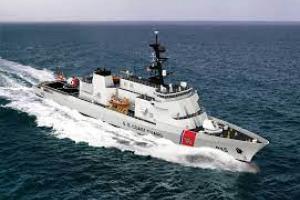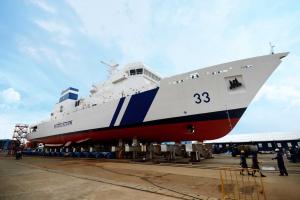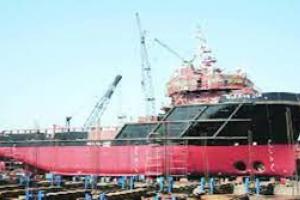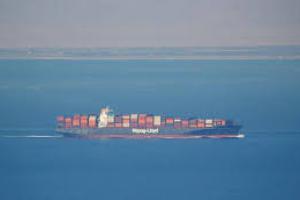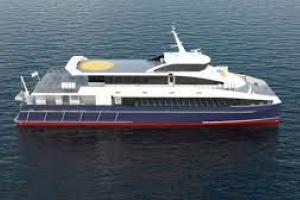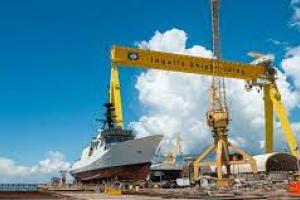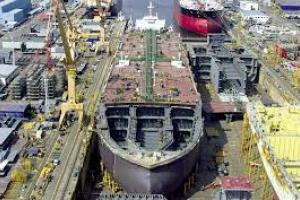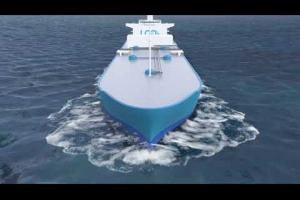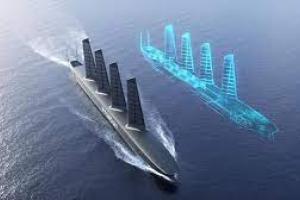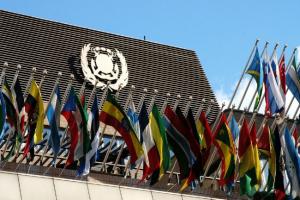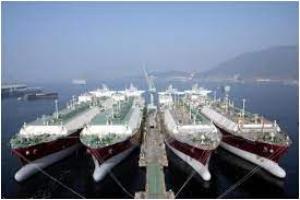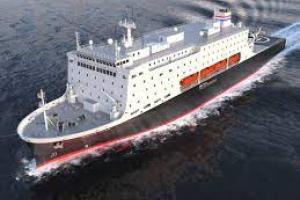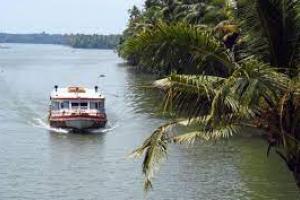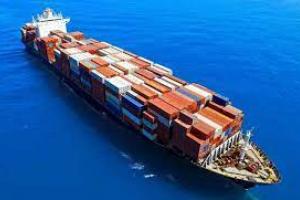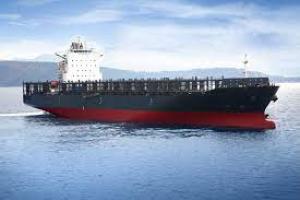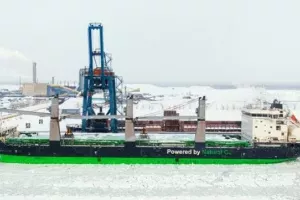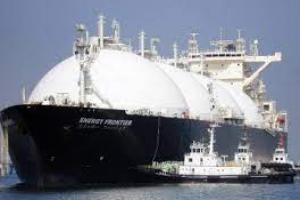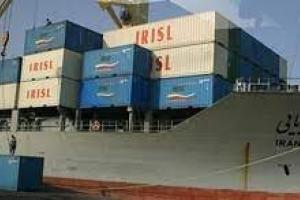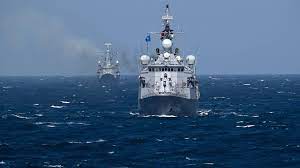
According to the Financial Times, the world's largest shipping management company has requested that NATO provide naval escorts for shipping in the Black Sea due to concerns that vessels could be at risk as a result of the conflict in Ukraine.
The CEO of V.Group, René Kofod-Olsen, told the source that NATO assistance is warranted since the region is critical for the transportation of food supplies. According to the newspaper, the crisis in Ukraine has rendered the northernmost portion of the Black Sea dangerous for commerce.
The CEO of V.Group, René Kofod-Olsen, told the source that NATO assistance is warranted since the region is critical for the transportation of food supplies. According to the newspaper, the crisis in Ukraine has rendered the northernmost portion of the Black Sea dangerous for commerce.
"We should demand that our seafaring and marine traffic is being protected in international waters. I'm sure Nato and others have a role to play in the protection of the commercial fleet," Kofod-Olsen told the FT.
Floating mines have been discovered and disarmed in the Western Black Sea, according to NATO, by authorities from nations that surround the waterway. A further concern, according to the organization, is the "potential of collateral damage or direct impacts on civilian vessels" in a section of the Black Sea.
Insider reached out to V.Group for comment but did not receive a response immediately. According to the Financial Times, NATO has so far turned down V.Group's proposal.
Insider reached out to V.Group for comment but did not receive a response immediately. According to the Financial Times, NATO has so far turned down V.Group's proposal.
"Russia's naval presence in the Black Sea has disrupted maritime commerce even before its invasion of Ukraine," the military alliance told the paper. "Nato is not considering a naval mission to escort ships in the Black Sea, but Nato allies that have coastal borders — Bulgaria, Romania and Turkey — have deployed ships to find and neutralize any mines that may be in the area."
NATO did not react to Insider's request for comment right away. Hundreds of seafarers on dozens of vessels have been trapped in the region as a result of the fighting, and they are running low on supplies such as food and gasoline, according to prior reports from the International Maritime Organization.
Following the invasion, the stranded vessels and crews have brought to light the difficulties associated with exporting and importing goods from the region via the sea. Because of the shutdown of ports, exports of commodities such as wheat and corn, of which Ukraine is a key provider, have already been affected. Meanwhile, towns throughout Ukraine are experiencing food, water, and energy shortages as a result of the restriction on imports.
Kofod-request Olsen's for NATO escorts comes after maritime and labour organisations' call for a "blue corridor" to safely evacuate stranded seafarers failed to materialise, according to the International Transport Workers' Federation, which previously told Insider that security risks such as mines prevented the corridor from being built.
In addition, security officials told the Financial Times that any such corridor may open a way for Russian military ships to enter Ukraine.
Following the invasion, the stranded vessels and crews have brought to light the difficulties associated with exporting and importing goods from the region via the sea. Because of the shutdown of ports, exports of commodities such as wheat and corn, of which Ukraine is a key provider, have already been affected. Meanwhile, towns throughout Ukraine are experiencing food, water, and energy shortages as a result of the restriction on imports.
Kofod-request Olsen's for NATO escorts comes after maritime and labour organisations' call for a "blue corridor" to safely evacuate stranded seafarers failed to materialise, according to the International Transport Workers' Federation, which previously told Insider that security risks such as mines prevented the corridor from being built.
In addition, security officials told the Financial Times that any such corridor may open a way for Russian military ships to enter Ukraine.
News Category
